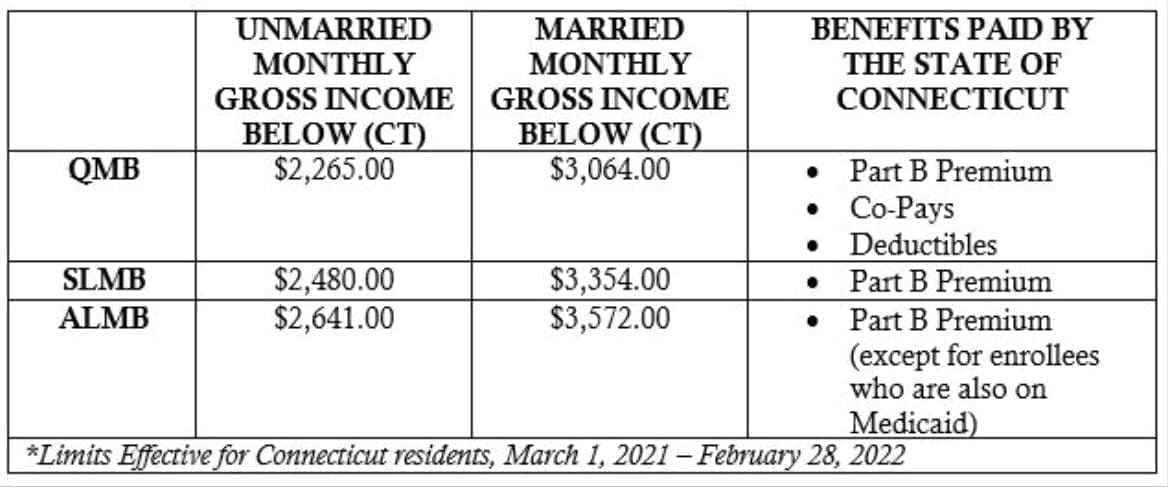WILSON’S UNABRIDGED DICTIONARY: THE ALPHABET SOUP OF THE MEDICARE SAVINGS PROGRAM
Estate Planning Attorneys are known for loving acronyms. We like to shorten the names of the tools we use and sometimes throw the terms around, forgetting that not everyone speaks Alphabet Soup. POA, HCD, SNT, QTIP, QPRT, ILIT are just some of the terms we use.
Maybe you’ve heard of some of them. The Medicare Savings Program (MSP) alone should really have its own dictionary. MSP, QMB, SLMB, ALMB are some of the terms used for this valuable and often unknown program.
What Does MSP Stand For?
So what is MSP? The Medicare Savings Program, or MSP, is actually a compilation of three programs that provide financial assistance to certain Medicare recipients. Medicare is the federal health insurance program available to most Americans aged 65 and older and also to younger folks who have been receiving SSDI for a certain period of time. Medicare is NOT a financial needs’-based program. But MSP is.
Related Post: A Medicare Savings Program 2023 Story
Who Is Eligible For Medicare Savings Program?
Currently, to be eligible for MSP, the Medicare enrollee must have income that is below certain set thresholds. These thresholds are adjusted every March and just increased on March 1, 2021. There are three levels of MSP: QMB, SLMB, and ALMB. Each program has different income thresholds and different benefits.
What Does The Medicare Savings Program Pay For?
Now we’re finally getting to the good stuff…the benefits. What exactly is this financial assistance that is provided? If you are a Medicare recipient who qualifies for an MSP program, the State of Connecticut will pay your Medicare Part B premium each month.
This year the standard Medicare premium is $148.50 per person per month. That means a couple pays close to $300 per month. You may not realize that you’re paying this amount every month because it is deducted from your social security payment.
It is not a bill that you write a check for every month. {SIDE BAR For the health insurance coverage that Medicare provides, that’s not such a bad deal. People who are not on Medicare pay thousands for health insurance. But it could cover the cable and internet bill!}…
You may be thinking that’s not such a big deal, but every dollar counts, right? More importantly, the QMB level of MSP also pays for your deductibles and co-pays. These costs could be huge and burdensome, especially for someone taking a lot of medications.

The reason I felt the need to write this article is because the benefit is not automatically given. You have to apply for it. And if you’re unaware of the benefit, you would not know to apply. The reputable Medicare agents that I work with know to inquire about this at their clients’ annual review meetings, but many Medicare recipients do not choose to review their plans every year {SIDE BAR #2 This is something I highly recommend, by the way, so much so that I included it in my Top 10 Myths and Misconceptions of Medicare and Medicaid}.
Related Post: Do You Have To Review Your Medicare Plan Every Year?
Here is your Connecticut Medicare Savings Program Dictionary:
ALMB: (eh-LIM-be ̅) n. 1. “Additional Low-Income Medicare Beneficiary” 2. One of three Medicare Savings Programs that require proactive enrollment and annual renewal that pays for the Medicare Part B premium for Medicare enrollees not on Medicaid 3. An unmarried Medicare enrollee whose gross monthly income is under $2,641 (Connecticut) 4. Married Medicare enrollees whose gross monthly income is under $3,572 (Connecticut). 5. See Table, below.
QMB: (Q eM Be ̅) n. 1. “Qualified Medicare Beneficiary” 2. One of three Medicare Savings Programs that require proactive enrollment and annual renewal and pays for the Medicare enrollees’ Medicare Part B premium, co-pays, and deductibles 3. An unmarried Medicare enrollee whose gross monthly income is under $2,265 (Connecticut) 4. Married Medicare enrollees whose gross monthly income is under $3,064 (Connecticut). 5. See the Table, below
SLMB: (SLIM-be ̅) n. 1. “Special Low-Income Medicare Beneficiary” 2. One of three Medicare Savings Programs that require proactive enrollment and annual renewal and pays for the Medicare enrollees’ Medicare Part B premium 3. An unmarried Medicare enrollee whose gross monthly income is under $2,480 (Connecticut) 4. Married Medicare enrollees whose gross monthly income is under $3,354 (Connecticut). 5. See Table, below.

So now that the figures are clearly outlined here for you, how do you know if you qualify?
What is the definition of Gross Income for purposes of the Connecticut Medicare Savings Program?
GROSS INCOME: (gro ̅s IN kəm) n.
1. Gross social security (not the net amount that is directly deposited because that is reduced by the Medicare premium and possibly taxes)
2. Gross pension payment (not necessarily the amount that is directly deposited because could be reduced by reductions, including health insurance and taxes)
3. Required Minimum Distribution for retirement accounts.
Related Post: Elder Law Attorney Breaks Down 2023 In Numbers
How To Apply For Medicare Savings Program?
If you believe you or someone you love might qualify for the MSP benefit, you can apply at any time. The application process is not that difficult and You can be approved fairly quickly (it is much faster and easier than applying for State benefits for home care or nursing home).
You can use this link to obtain the application. If you need help, you can contact your Medicare Agent, who can likely assist you for free. If MSP is only a piece of your overall concern with the bigger picture of long-term care for yourself or a loved one, we can help. Call us for a consult to get an overview of your options and put your mind at ease.
Disclaimer: The information provided in this article does not, and is not intended to, constitute legal advice and is for general informational purposes only.
Let Us Know How We Can Help!
Please fill in your contact information and a brief message about what you need help with. A consultation will need to be scheduled in order to provide legal guidance.
Joan Reed Wilson Esq. – Managing Partner
Practices in the areas of estate planning, elder law, Medicaid planning, conservatorships, probate and trust administration, and real estate. Admitted to practice in the States of Connecticut and California, she is the former President of the CT Chapter of the National Academy of Elder Law Attorneys (NAELA), an active member of the Elder Law Section of the Connecticut Bar Association, accredited with the PLAN of CT for Pooled Trusts, with the Veteran’s Administration to assist clients with obtaining Aid & Attendance benefits for long-term care needs and with the Agency on Aging’s CareLink Network.







